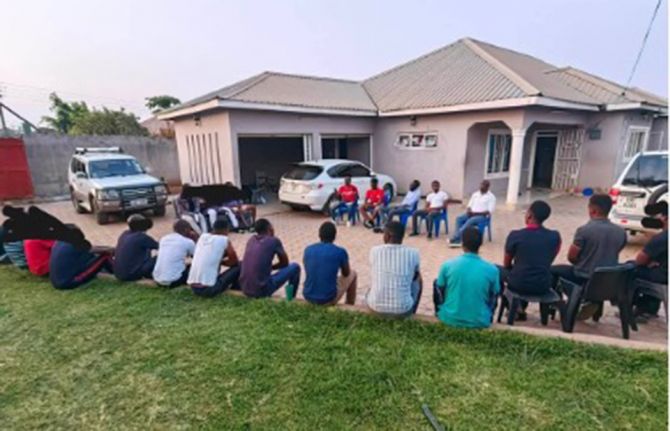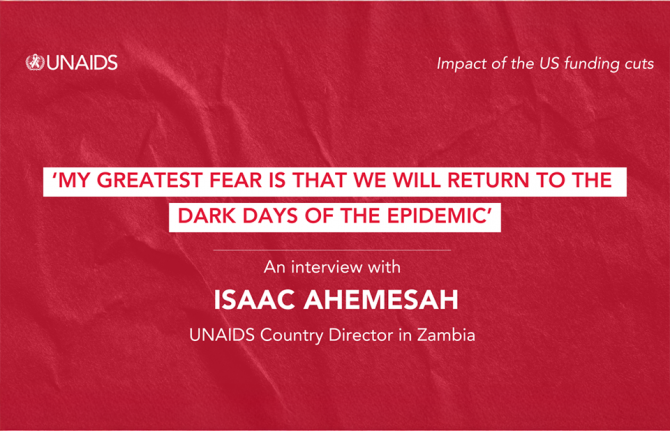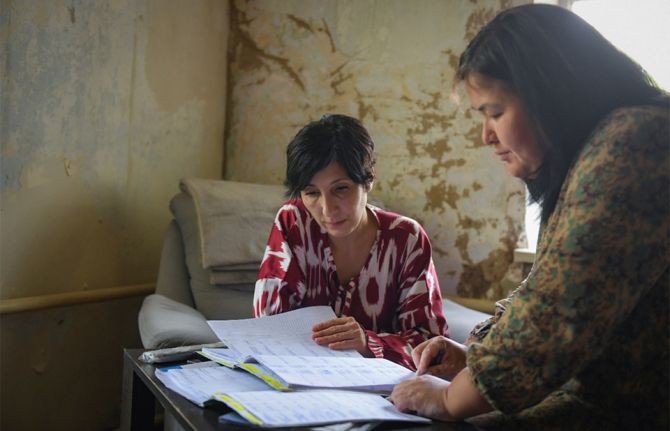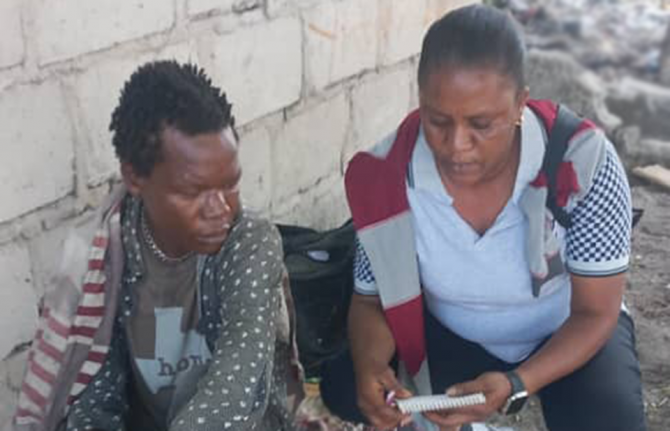

Feature Story
Rebuilding lives, one day at a time: A journey from addiction to recovery in Zambia
27 June 2025
27 June 2025 27 June 2025Nkumbu is 24 years old and has just finished his medical school exams in Lusaka. He’s been sober for six months. “I still can’t believe it,” he says. “Six months ago, I was wandering the streets thinking: am I ever going to make it in life? But today, I’m here.”
Growing up, Nkumbu dreamed of becoming a doctor. “There are no doctors in my family. I thought I’d become the first.” But alcohol derailed his journey early on. He began drinking in high school to overcome social anxiety. “My first girlfriend, I met her while I was intoxicated, so I thought this really worked.” What started as weekend partying turned into a habit. Eventually, his dependence led him to drop out of medical school twice.
Raised by his aunt after the death of his parents, Nkumbu recalls her heartbreak the day he was suspended from school for drinking. “She didn’t say a word on the drive home. That should have been the wake-up call. I lost faith in myself and my ability to finish medical school. I was drunkenness, day in and day out—until I found Sanity House.’’
Sanity House: A safe space to heal
Located in Lusaka, Sanity House is a rehabilitation and harm reduction centre offering a safe space for people who use drugs. Through medical, psychosocial, and vocational services, the centre builds a family-like community that helps clients heal and re-enter society with dignity and purpose. Many of the staff, including Daniel Mbazima, House Manager, are in recovery themselves and serve as mentors and role models.
Routine testing at Sanity House reveals an alarming HIV prevalence of 26% among people who use illicit drugs, compared to the national average of 11%. In Zambia, people who inject drugs (PWID) face various vulnerabilities. A 2022 bio-behavioural survey found HIV prevalence among PWID to be 7.3% in Lusaka, 21.3% in Ndola, and 12.2% in Livingstone.
According to UNAIDS, around 30,000 people injected drugs in Zambia in 2023, and 1.3 million people were living with HIV. Yet, access to harm reduction services remains limited due to stigma, criminalization of drug use, and inadequate support. In this context, Sanity House is reducing the risk of HIV infection by helping prevent addiction and giving young people like Nkumbu another chance to get back on track and pursue their life goals.
“Rehab is one day at a time. One day turns to ten, ten turns to a month. And now, six months later, I’m back in class,” Nkumbu says. “The people I used to drink with… some are dead, others are struggling to continue their studies, are in the army or even in prison.”
At Sanity House, Nkumbu found not only a way out of addiction but also restored hope. “The other patients reminded me how great I am. Thanks to them, I began to see it again in myself, to see how far I’ve come and I told myself: I got this.”
Nkumbu is now a youth advocate on Zambian television, sharing his story to raise awareness about youth and substance use. When asked about his first love, now a pilot in South Africa, he laughs. “Maybe she flew past me. I’ve got to get myself together first. I’m trending now, maybe she’s even seeing it.”
Recovery is only possible when communities are adequately supported
Daniel Mbazima, House Manager at Sanity House, has witnessed many lives transformed at the centre. “Lasting change requires sustained community support and investment,” he says “The high rate of substance use combined with a lack of integrated health services is very alarming. We urgently need programmes that link addiction recovery with essential healthcare services, particularly HIV, TB and Hepatitis C prevention and treatment, among others. Stigma remains one of the biggest barriers, preventing people who inject drugs from seeking help. Addressing these challenges demands greater support and financing for interventions like we implement at Sanity House.”
Clinton Kruger, a former client and now peer mentor at the centre, adds: “Recovery is possible. I’m the living proof of that. I want to show the world that there is hope, not only for those struggling with substance use, but also for their loved ones. Don’t give up on us. Sometimes, the care of just one person can be the only light in the darkness that addiction creates. You are not alone. Reach out. There is help, and there is a way forward.”
As we celebrate the International Day Against Drug Abuse and Illicit Trafficking on the theme “the Evidence is Clear: Invest in Prevention” UNAIDS and UNODC call for urgent and coordinated action to decriminalize drug use and possession for personal use and to scale up harm reduction strategies and community-led programmes. Evidence shows that harm reduction, including needle exchange, opioid agonist therapy, and overdose prevention reduces HIV transmission and improves health outcomes. Yet, these services remain underfunded and inaccessible in many countries, including Zambia.
Nkumbu’s story is one of resilience, community, and the power of second chances. “I could have caught HIV, or worse. But I didn’t. I’m lucky. And now I get to help others.”
By working alongside and supporting communities, we can break the cycle of drug abuse and illicit trafficking by addressing its root causes, investing in prevention, and strengthening health, education and social support systems.



